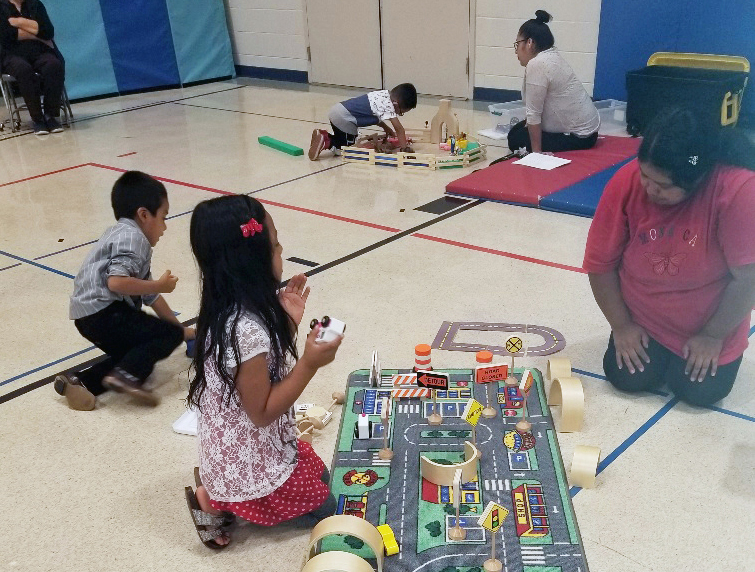
By Lynn DeVries, MS, Extension Educator, Adams County
CREATING OPPORTUNITIES FOR PARENT PARTNERSHIPS
Opening the doors to meaningful contacts and connections with parents is a fundamental piece in building relationships with families. Early childhood professionals who insure this is done well and in accordance with best practices are getting to know their families well. They understand the backgrounds and special talents and skills that their family clientele bring with them and they work to incorporate these gifts into activities and learning in their child care homes and centers.
The National Association for the Education of Young Children (NAEYC) outlines six principles of and also gives insight to specific ways early childhood programs can meet this standard of excellence in their day-to-day practices.
SIX PRINCIPLES OF FAMILY ENGAGEMENT RECOGNIZED BY NAEYC
1. Families participate in decisions and goal setting — Invite families to participate in decision making and goal setting for their child. This can be done through initial intake questionnaires, regular parent teacher conferences and a consistent staff person to follow the family throughout the program.
2. Teachers and programs engage families in two way communication — Face to face, written and online communication that is both school and family initiated (and in the family’s preferred language), invites a dialogue about the child’s educational experiences as well as what is happening in the early childhood center.
3. Reciprocal relationships — Staff are connecting with families to learn about their lives, communities and cultures, and work to intentionally integrate this into the curriculum and instruction. Child care programs work to help families share some of their own special skills, talents and knowledge and invite them to take an active role in the school environment.
4. Learning activities at home and the community — Programs are educating families about child growth and development and connecting families to other services available in the community to support their child’s education. Many times communities have free or low cost events for families with young children.
5. Families are involved in Program decision making — Family members are asked to serve on committees and boards that help make decisions to shape the policies of the program. Families have input on hiring of personnel, admission policies and menus, to name a few. These committee members can also lead the way in raising funds for special projects.
6. Programs implement a comprehensive program-level system for family engagement — Programs are intentional in reaching out to families in a variety of ways (newsletters, email, etc.). Teachers are given support and training in effective family engagement strategies including having a diverse staff that mirrors the community. Programs ensure curriculum serves as the foundation for educational experiences. The environment is anti-bias and inclusive for all participants.
Check out the full article from NAEYC Principles of Effective Practice at http://www.naeyc.org/familyengagement/principles.
ADVICE ON CREATING PARENT PARTNERSHIPS
At a recent early childhood conference, the Buffet Early Childhood Institute gave this advice on creating parent partnerships:
Listening Conferences — Prior to the start of school, invite parents to do the talking at a special parent-teacher conference. The idea is to engage the family before school starts to gain valuable new information about the child and family, which can be incorporated into the learning environment.
Conference Artifact Activity — Another helpful strategy to learn about children at conferences is to invite the parents to share one artifact or item that has a special meaning to their child. When parents share their story about the item, it gives them a voice in the meeting, and provides the teacher with important insight into who the child is.
The Buffett Institute is dedicated to research, practice, policy and outreach initiatives to improve the early life experiences of children from birth to age 8. Check out their website at http://buffettinstitute.nebraska.edu.
What strategies are you using to engage families in your early childhood care and education programs?